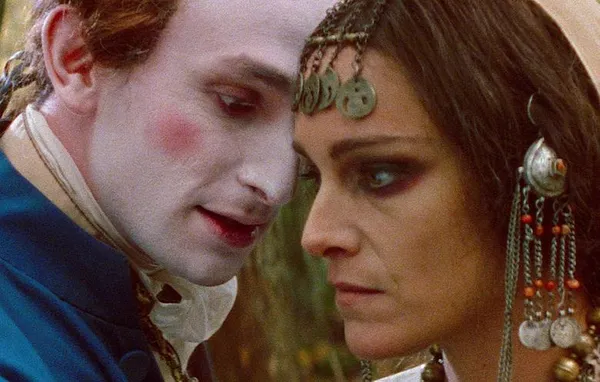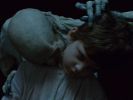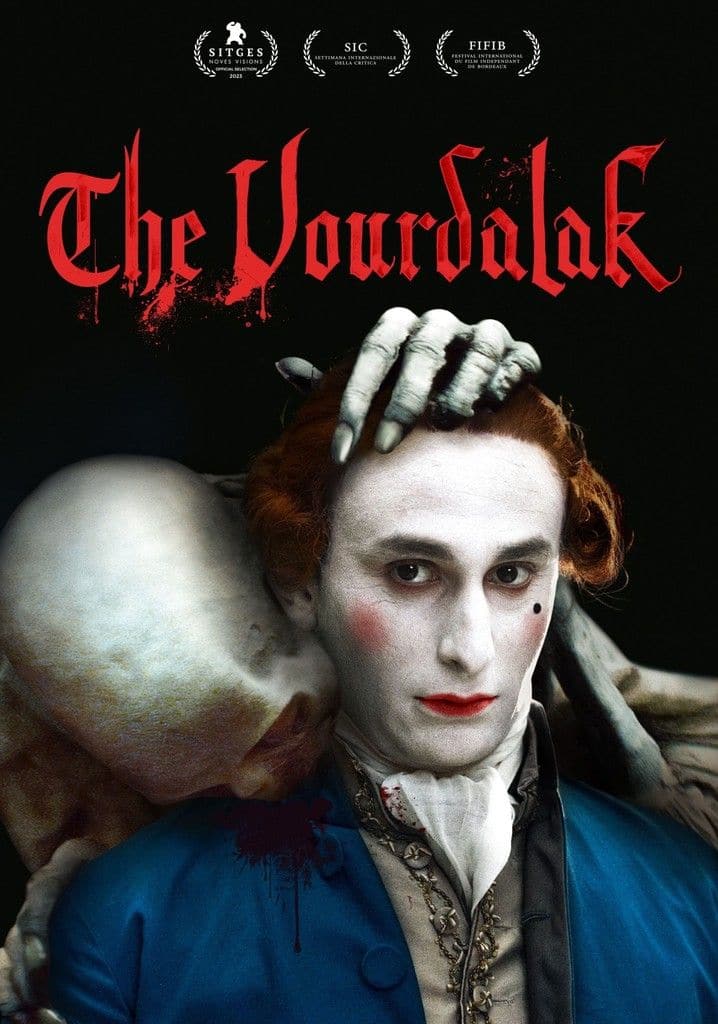Eye For Film >> Movies >> The Vourdalak (2023) Film Review
The Vourdalak
Reviewed by: James Gracey

Based on a 19th century Gothic novella by Aleksey Tolstoy (previously adapted for cinema by Mario Bava as a segment in his 1963 anthology, Black Sabbath), The Vourdalak is the debut feature film from French writer-director Adrien Beau. It tells of the Marquis d'Urfé (Kacey Mottet Klein), an emissary of the King of France who seeks shelter with a family when he becomes lost travelling through Eastern Europe. The family are anxiously awaiting the return of their patriarch, Gorcha, who has gone to capture an outlaw. Before leaving, he forewarned his family that if he does not return within six days, he has been killed and, if he reappears, they must refuse him entry to the house as he has become a vourdalak; a walking corpse returned from the grave seeking the blood of its loved ones...
Prior to the rise of the literary vampire, beginning with Bram Stoker's Dracula, Sheridan Le Fanu's Carmilla, and John Polidori's The Vampyre, Eastern European folkloric vampires, or revenants, were typically lower-class, peasant folk who had returned from the grave to feed on their family. Stoker et al elevated the figure of the vampire to the aristocracy, free to roam the earth, with wealth and power, draining the life-force of the under-classes. It's an interesting contrast and one that Beau and co-writer Hadrien Bouvier lift directly from Tolstoy's story in order to explore ideas about class, family, love, and hereditary intolerance.

Filmed on Super 16, The Vourdalak looks like a much older film, and amid the gauzy atmospherics lurk a plethora of striking images, not least the emaciated Gorcha beckoning his little grandson into the moonlit woods. Voiced by Beau, and portrayed on screen by a skeletal marionette, Gorcha is a terrifying sight; a gaunt, raw-boned husk, with a lipless face, rictus snarl and bulging eyes. The use of a marionette to portray a living corpse, with its shocking features suggestive of the waxy uncanniness of an embalmed body, is daring but effective. It has much more character and soul than a digitally created character and it's testament to Beau's screenplay that a certain degree of sympathy is also evoked for this frightening yet strangely pathetic creature.
Shot entirely on location and deeply entrenched in rural folk life and lore, The Vourdalak has a weird air of authenticity and shades of folk horror about it, not least the ritualistic practices enacted by daughter Sdenka (Ariane Labed) and her younger brother Pierre (Vassili Schneider) to try and ward off their father's corpse. The sound design enhances the chilling atmosphere, with morbid groaning and slurping signalling the undead father's presence in the night (vourdalaks are said to suck on their burial shroud).
Throughout, Beau explores the dangers of unwavering, unquestioning devotion, and the idea that intolerance and hatred is passed down through generations, refusing to die off. The family are systematically preyed upon by their father, and they literally kill each other because they love each other. Beau's thoughtful screenplay is also peppered with gentle humour that emanates from carefully drawn characters who we grow to care about. The subtle dynamics that exist within the family unit shift as the story unfolds, creating a strong emotional core.
The younger brother Pierre explains to the Marquis that, "Love itself is a curse in these parts". This speaks to the family's predicament, suggesting their love for their father, and each other, is what dooms them as they gradually realise he is a revenant. However, Pierre is also presented as Queer and non-conforming to traditional gender roles (he wears jewellery and make-up and is initially misgendered by the Marquis), cruelly maligned and rejected by Gorcha, so his statement suggests another, deeper context regarding societal intolerance.
An immensely dark, macabre and unsettling work, The Vourdalak is for those who appreciate thoughtful, slow-burning and ghoulish horror. Beau's methods of storytelling are a reminder of the haunting power and magic of cinema.
Reviewed on: 03 Sep 2023
















